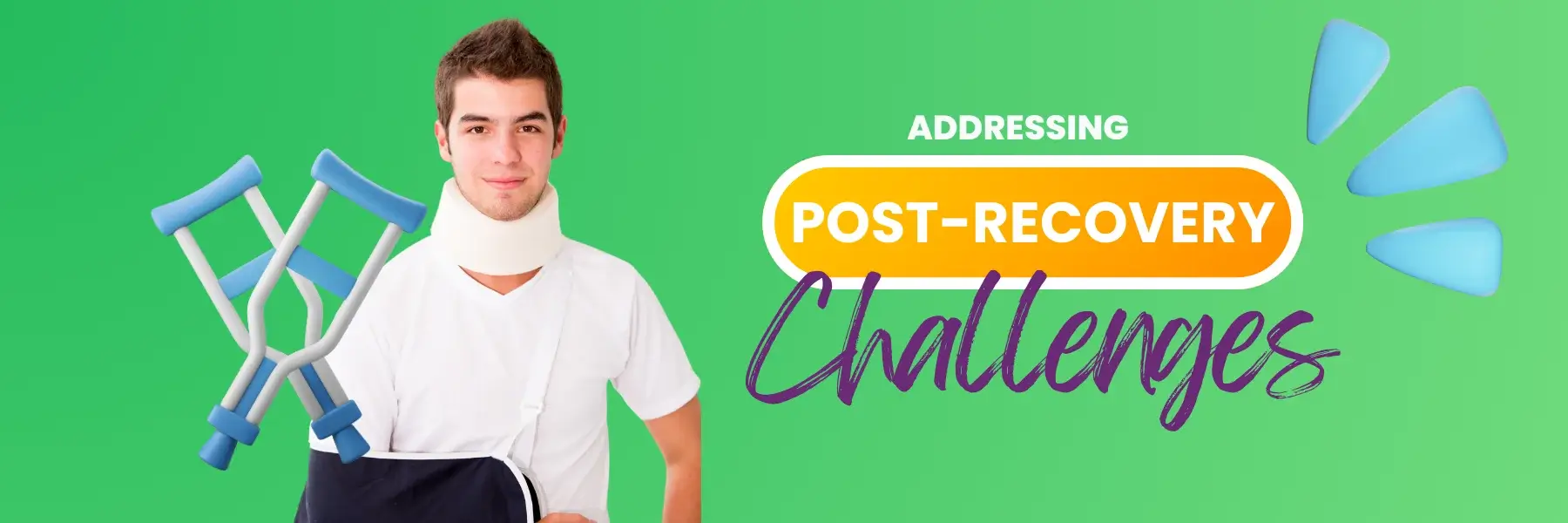Recovery from an illness, injury, or surgery is usually a marathon rather than a sprint. While most early phases of rehabilitation often focus on getting people back to some base level of function, ongoing support is what proves critical for many in dealing with really difficult issues following the event.
Ongoing rehab support can make a difference in people’s lives as they work their way through challenges, adjust to new circumstances, and pursue their best possible quality of life. This article will explore eight ways continued rehabilitation can support you beyond the initial phase of recovery, highlighting some of the benefits of revisiting rehab and offering some helpful tips for finding the right support.
Understanding the Need for Revisiting Rehabilitation
For many people, despite making great strides during the first stages of rehabilitation, there is still much difficulty ahead. Such challenges may include:
Lingering Physical Limitations: With this respect, the physical limitations or discomforts from these injuries may still be felt even after full recovery and thus affect the carrying out of daily activities and general well-being.
Psychological and Emotional Adjustments: These injuries are equally quite burdensome to recover from mentally and emotionally; thus, frustration, anxiety, or depression are common.
Lifestyle Changes or Changes in Ability: Some changes might require you to do things a little differently or get used to not being able to do something the way you used to, which can be rather difficult to do without further assistance.
Returning to rehabilitation can help make these current concerns more bearable by providing a systematic means through which such hurdles can be put up with and overcome after the initial phase of recovery.
Benefits of Returning to Rehab
Returning to rehab after initial recovery can have several benefits:
Ongoing Physical Therapy: This level of ongoing care in physical therapy helps deal with chronic pain issues, improves muscle strength, and enhances mobility. Such therapy allows for some of the targeted exercises and adjustments that may have been incomplete or otherwise not fully achieved in the initial rehabilitative processes.
Mental Health Support: Recovery many times requires significant psychological and emotional challenges. Ongoing rehabilitation may also provide counseling or support groups that help a person deal with anxious feelings, depression, or frustration associated with their recovery process.
Customised goal setting: As recovery proceeds, certain new goals may become necessary. Returning to rehab enables one to set new, realistic goals according to the current abilities and aspirations so that the rehabilitation process matures with your needs.
Adaptation to lifestyle changes: If your recovery has led you to make certain changes in your life or your capabilities, then continued rehab will be able to enable you to adapt and build new strategies on how to handle daily activities and remain independent.
Prevention of Relapse or Setbacks: Regular follow-up and continued support prevent the onset of relapses or setbacks by dealing with any issues before they evolve to become major problems. Therefore, it ensures success and stability sustainably.
Key Components of Continued Rehabilitation
Continued rehabilitation may be made up of some key components based on individual needs:
Reassessment and Reevaluation: Regular reassessment ensures follow-up of progress, identification of persisting problems, and modification in treatment plans to ensure that rehabilitation remains effective and current in relevance.
Personalised Therapy Plans: Continued rehab involves the formulation and amendment of individualised therapy plans that precisely pinpoint post-recovery challenges. These may include physical therapy, and occupational therapy, among other specialised services.
Education and Training: Learning about your condition, assistive devices, and new techniques to make adaptations and maximise function is important.
Support Systems: Develop and utilise your support systems. It is common for ongoing rehabilitation to include emotional and psychological support through groups, peers, and mental health professionals.
Lifestyle and Functional Changes: Practical aspects of home modification, adapted equipment, and managing daily activities can help improve quality of life and independent function level.
Tips for Going Back to Rehabilitation
In case one decides to return to rehabilitation, here is how to make the process easier and more efficient:
Communicate Openly with Your Healthcare Providers: Let them know your concerns, problems, and aims; this will make your rehabilitation program meet your current needs.
Be Open to New Approaches: Be open to new therapies, techniques, and support systems that you might not have considered in the initial rehabilitation process but could help resolve remaining problems.
Setting Realistic Goals: Sit down with your rehabilitation team to set appropriate, realistic goals based on current capabilities and what is going on in your life. This will help in maintaining motivation and keeping tabs on progress.
Consistency with the Rehab Plan: Consistency is the surefire way of making progress. Be consistent in your rehab plan and attend all scheduled sessions for continued benefit.
Involve Your Support Network: Involve your family members or caregivers in your rehabilitation process for them to know your needs and best support and encourage you.
Returning to Previous Rehab Services or Exploring New Providers
Whether or not a person returns to previous rehabilitation services or seeks out new providers depends on several factors:
Continuity of Care: Returning to your old rehab provider can provide continuity of care since they are already aware of your medical history and the development of your recovery.
Availability of Services: Make sure your previous provider currently offers the exact services or support that you may need at this stage in your recovery. If they don’t, it might be time to look into new options.
New challenges or needs: If your challenges post-recovery require other expertise or services, this may be a time to find new providers who can specialise in those areas.
While considering new providers, consider those that offer comprehensive rehabilitation services and are experienced in managing challenges post-recovery. Provider 24 can always assist in finding suitable NDIS providers offering the right rehabilitation services according to your needs.
The Impact of Continued Rehabilitation
Continued rehabilitation might make a difference in your general health and recovery in several ways, including but not limited to the following:
- Better Recovery Outcomes: The ongoing support can help alleviate persistent problems by offering better recovery outcomes and managing your condition generally.
- Increased Independence: Further rehabilitation promotes skills building and adaptation that allows you to live more independently and have a fulfilling life.
- Enhanced Quality of Life: In dealing with physical, emotional, and functional issues, further rehabilitation improves your quality of life and personal satisfaction.
Long-term stability results from continued rehabilitation support, which consolidates gains and minimises steps backward to ensure that gains are long-lasting.
Conclusion
Continuing rehabilitation support in life after recovery is highly important; a person may be bound to encounter various challenges, hence achieving optimum results. It begets physical limitations, emotional support, or adapting to new needs in lifestyles; further rehabilitation is considered key in sustaining and improving the quality of life for these persons.
If you are considering returning to rehabilitation or seeking other supportive services, then Provider 24 will be of great help. They will facilitate your communication with an appropriate NDIS provider who will provide you with intensive rehabilitation services tailored to meet your specific needs. You will be assured that, through continued rehabilitation support, during the after-recovery phase of your life, you are guaranteed to get the care and support best suited for you and your journey to full recovery and independence.




